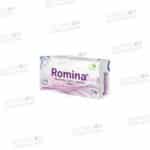Just as diet can have a positive or negative impact on heart, brain, and bone health, the overall health of the colon can also be influenced by nutrition. That’s why it’s important to educate yourself through specialists in this field.
The colon is a crucial part of the digestive system, and many conditions can cause it to function improperly. These conditions include inflammatory bowel diseases like ulcerative colitis, Crohn’s disease, diverticular disease, irritable bowel syndrome, and colorectal cancer. The treatment for these diseases includes dietary and lifestyle modifications, medications, and/or surgery.
One of the most serious colon disorders is colorectal cancer. The main risk factors include age (the risk increases after the age of 50), excessive alcohol consumption, family history, physical inactivity, previous polyps, inflammatory bowel disease, and smoking. There is also a strong correlation between obesity and an increased risk of colon cancer.
Proper food choices and physical activity can be beneficial even if you don’t lose weight.
What to do and what not to do in your diet:

Diets rich in vegetables, fruits, and whole grains and low in red and processed meats have been associated with a lower risk of colon cancer, according to the American Cancer Society (ACS). To promote good colon health, follow these dietary recommendations:
- Add plant-based foods to your diet:
Start by following a diet rich in whole grains, vegetables, fruits, nuts, seeds, and legumes. This doesn’t mean you have to eat only vegetables, but at least half of your plate should consist of plant-based foods, which provide numerous vitamins, minerals, beneficial antioxidants, and are rich in fiber, a natural compound that helps prevent cancer.
It is essential to include a variety of fruits and vegetables with a diversity of colors. Each plant pigment provides different nutrients or phytochemicals that offer a variety of health benefits, such as strengthening the immune system and reducing inflammation. - Limit red meat consumption:
According to the ACS, the risk of colon cancer increases by 15% to 20% when consuming 100 grams of red meat or 50 grams of processed meats like sausages or bacon.
Prioritize chicken, turkey, and fish over beef, pork, and lamb The American Institute for Cancer Research recommends consuming no more than 500 grams of red meat per week to reduce the risk of cancer. If you choose to eat red meat, do not consume more than 340 to 500 grams per week. - Avoid sugar
Various studies have found that people with ulcerative colitis and Crohn’s disease tend to have high-sugar and low-fiber diets.
Limit added sugar to less than 25 grams per day. Natural sugars from fruit and dairy products can provide beneficial vitamins and minerals. As for beverages, seek sugar-free alternatives like sparkling water, teas, or unsweetened coffee. - Increase fiber intake:
Maintaining a high-fiber diet is good for overall intestinal health, including the colon.
The American Institute for Cancer Research recommends consuming at least 30 grams of fiber per day. Fiber helps maintain regularity and prevents constipation by facilitating the movement of food through the gastrointestinal tract, reducing the risk of developing small pouches in the colon and hemorrhoids that can eventually lead to diverticular disease. - Choose whole grains wisely:
Whole grains are natural products that have not been stripped of their nutrient-rich outer layer and fiber. Dietary guidelines recommend that all adults consume at least half of their daily grains as whole grains, about three to five servings.
Some of the easiest-to-find whole grains include barley, quinoa, whole wheat, brown rice, wild rice, and oats. These foods contain more vitamins, minerals, fiber, essential fatty acids, antioxidants, and phytochemicals (natural compounds in plants that have a beneficial effect on the body) than their refined grain counterparts, such as white flour and white rice. - Diversify your gut microbiome:
A healthy colon contains billions or even trillions of beneficial bacteria per centimeter. A diet that includes a variety of nutrient-rich foods containing fiber and sources of probiotics will increase the colon’s microbiota.
A plant-based or Mediterranean-style eating pattern has been shown to diversify the gut microbiota and reduce the risk of developing colorectal cancer.
Foods containing probiotics can also help promote the growth of intestinal flora in the colon. Those looking to increase their probiotic intake can try foods such as yogurt, kimchi, kombucha, tempeh, kefir, miso, and sauerkraut.
Conclusion:
While eating well can help maintain a healthy colon, the most powerful way to prevent colon cancer is through screening tests. Colonoscopy is a structural examination of the colon that allows healthcare professionals to detect and prevent this type of cancer.
Colonoscopy reduces the risk of developing colon cancer because precancerous polyps can be found and removed during the procedure, ultimately reducing the risk of a person developing colon cancer. When detected early, up to 95% of colorectal cancers are curable, according to the Colon Cancer Foundation.


